Preface
Some people have so much impact and leave a gigantic footprint in a country or a region that they are forever intertwined with the history of a place. Like Raffles belong to the history of Singapore, so is Jozef De Veuster an identity that revered among the beautiful islands of Hawaii.
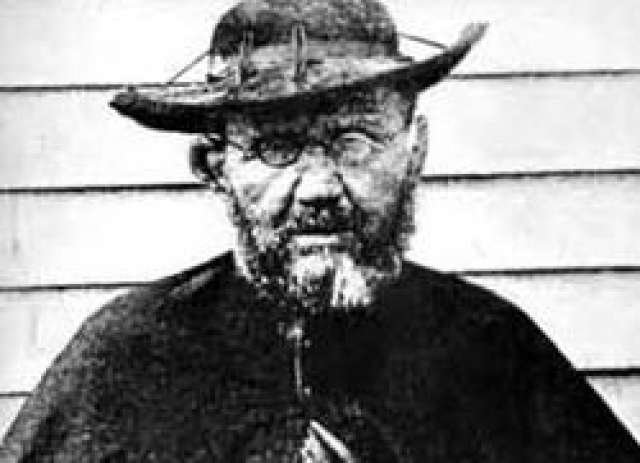
Even today, the leprosy priest is subject to worship and admiration by millions of people. The historical accent on his priesthood and sainthood is overwhelming for his true personality, that of a stubborn Flemish countryside boy.
The life story of Father Damian is not an easy one, to give him sainthood is easy, but there is no detailed analysis of this man. Next, to his religious side, it was somebody that knew drama and courage. It was, in fact, a very complicated man.
Biography
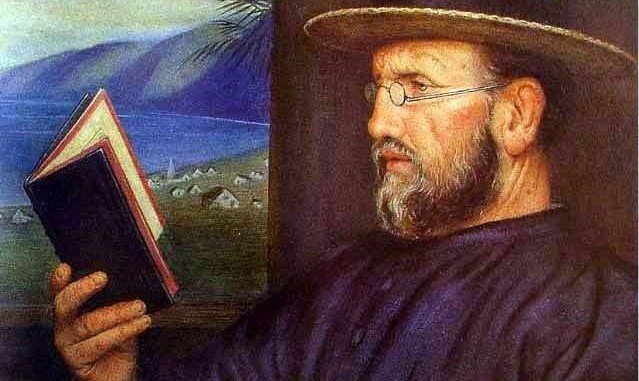
He was born in the small Flemish town of Tremelo and he was mean to be a religious man. It was the time that Flanders was one of the most devoted regions in Europe. Two of his sisters were nuns, a brother was a monk and the young Jozef grew up in a Catholic Flemish family. He studied for the priesthood and acceded to the congregation of ‘The Holy Hearts from Jezus and Maria” in the city of Leuven. Jozef chose the name of Damianus (Damian) and this would be his alter ego until death and far beyond his death.
In 1860 has ordained as a Catholic brother despite some difficulties with studying. The intellectual knowledge of the young De Veuster was rudimentary, but he did manage to learn Latin and was allowed into the brotherhood. Damian had only one wish to become a missionary just like his brother and to leave Flanders to preach all over the world. Ironically, three years later he replaced his brother as a missionary in Hawaii.
Hawaii
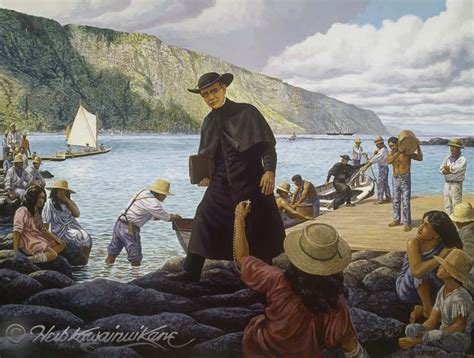
March 1864, the enthusiastic Damian sets foot on Hawaiian land. One month later, he received his priesthood in the cathedral of Honolulu. One year later, he receives a mission post in North Kohala on the northern main island of Hawaii.
The paradise islands of Hawaii were then an independent Kingdom. The ruling monarch: Kamehameha V was not able to deal with the medical crisis that had hit the islands. Foreign visitors and sailors had brought with them many diseases to the white shores. Thousands of people died from the flu, syphilis and other illnesses previously unknown in these parts of the world. One of the most feared diseases was leprosy. Diagnosed with the illness equaled a death sentence. The Hawaiian government approved a mandatory exile for lepers to the remote island of Molokai. This region was difficult to access and a real jungle. More than 800 Hawaiians found themselves there in a kind of concentration camp.
It did not take long to get out of hand. The medical help was disastrous and hundreds of people became the pariah of Hawaii in the leprosy oblivion.
Molokai
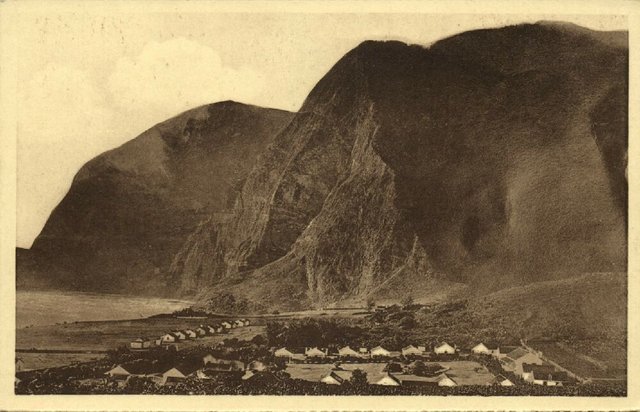
The Catholic Church decided to send a priest to help those poor people with their spiritual needs. The church officials knew very well that such an assignment was, in fact, a suicide. After long consideration, they had to choose from four volunteers. The bishop decided that each four of them should take a rotating tour. In 1873, Damian was the first priest who arrived at the leprosy colony Kalaupapa. He was immediately responsible for 816 lepers.
After an initial shock Damian started with only one goal, he wanted to give a human face to this dreadful place. Singlehanded he built a church and later he added houses, furniture and became even the mortician. In the letters, he wrote home he described himself a leper between lepers. Damian established a human structure. He reintroduced the law and opened up schools for the young ones. On his request and one the unanimous request of all lepers, Damian stayed on Molokai.
The Illness and the Death of Molokai’s Son
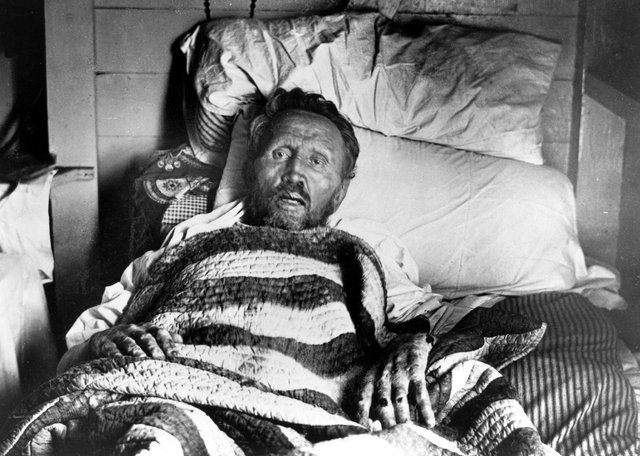
In December 1884, Father Damian noticed that he contracted the disease. Damian went on with his work and activities as if nothing had happened. He began to issue orders for the continuation of his work after his passing.
One of the great authorities on the Leprosy disease the Japanese doctor Masanao Goto came to Molokai to treat him. It resulted in a slowing down of the disease and Damien shared his medicines with all other lepers. Those two men became close friends and were both in their own way remarkable.
Even with the shadow of death hanging over him Damian was all vitality, he designed houses, hospitals and was the leading man in this doomed community. The legend overcame the loneliness of Hawaii and the man became an international legend, what resulted in more appreciation for his work and a better understanding of the disease and its patients.
Soon he got reinforcements, a second priest and a nun came to help him accompanied by a soldier. They volunteered to help him. Damien gave back hope to those who were once doomed. Together they build a small city. Molokai was now a symbol of hope and compassion.
On April 15, 1889, Father Damian died on his beloved Molokai. The funeral took place in the church he built himself.
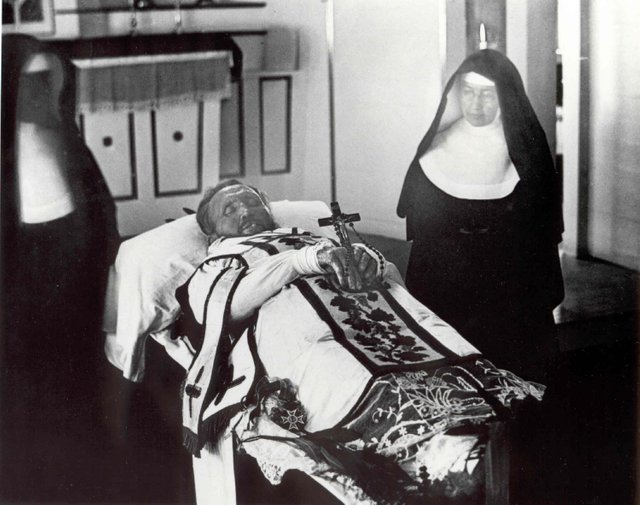
In 1936, the Belgian government had his body exhumed and brought back to Belgium: His remains rest now in Leuven, not so far from where he was born. In 1995, his right hand returned to his original grave in the sands of Molokai.
Legacy
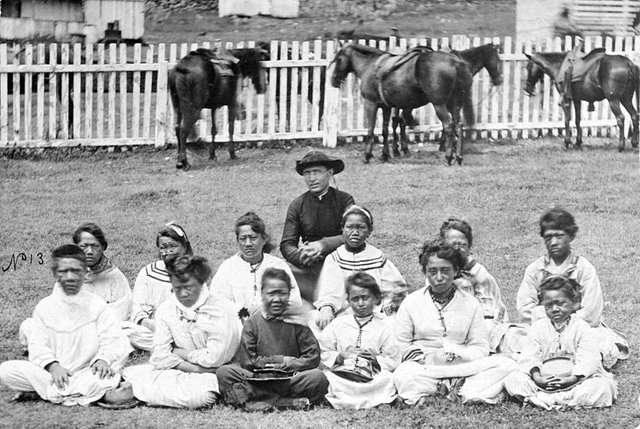
Father Damian was born in Flanders, but his soul and his heart were always on the shores of Hawaii. Damian became an instant celebrity and funds were flooding in for the victims in Molokai. Once again, the stubborn priest did what he was best in helping the lepers of Hawaii.
On October 11, 2009, Pope Benedictus XVI declared father Damian as holy; he is held responsible for two miracles: one in France and one in Hawaii. His saint’s day is on May 10 with the exception of Hawaii where they celebrate him on his anniversary April 15.
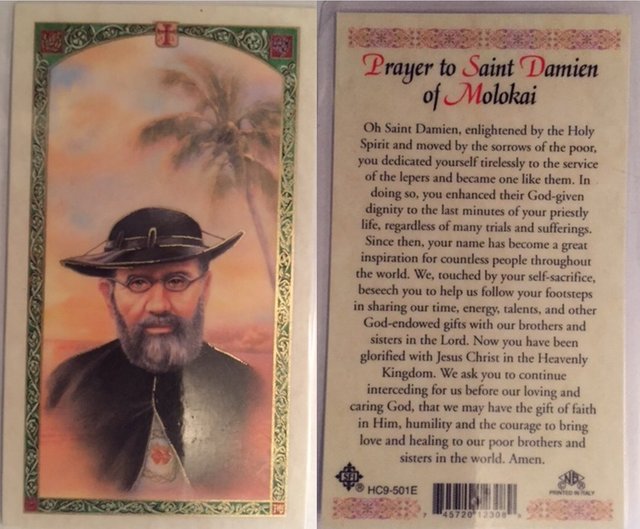
Jozef De Veuster is without a doubt the most popular Flemish person in the world. He is the only European with a statue in the American Capitol. In Hawaii, his legacy lives on in street names, schools, statues, arts. The man who was not afraid of death is a real hero in the islands.
The story of Father Damian is exceptional; it is magical to think that one moment a small child was looking to the golden cornfields in Flanders and later rests on the white beaches of a tropical island surrounded by many people who are eternally grateful for who he was and what he stood for.
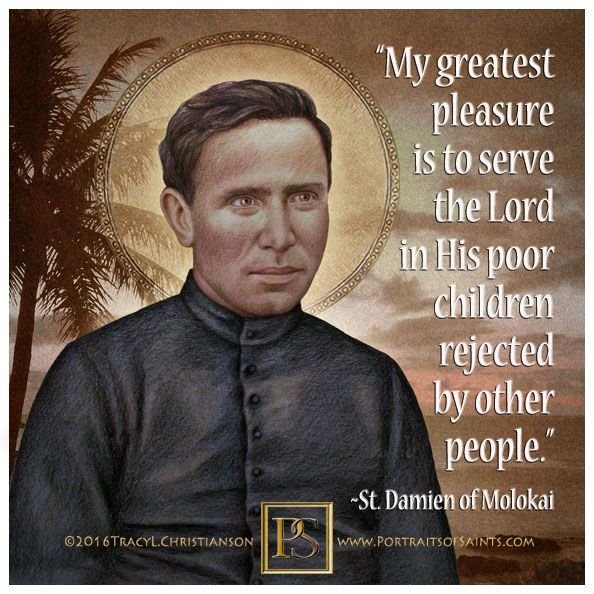

@originalworks
Downvoting a post can decrease pending rewards and make it less visible. Common reasons:
Submit
The @OriginalWorks bot has determined this post by @thalmaray to be original material and upvoted it!
To call @OriginalWorks, simply reply to any post with @originalworks or !originalworks in your message!
Downvoting a post can decrease pending rewards and make it less visible. Common reasons:
Submit